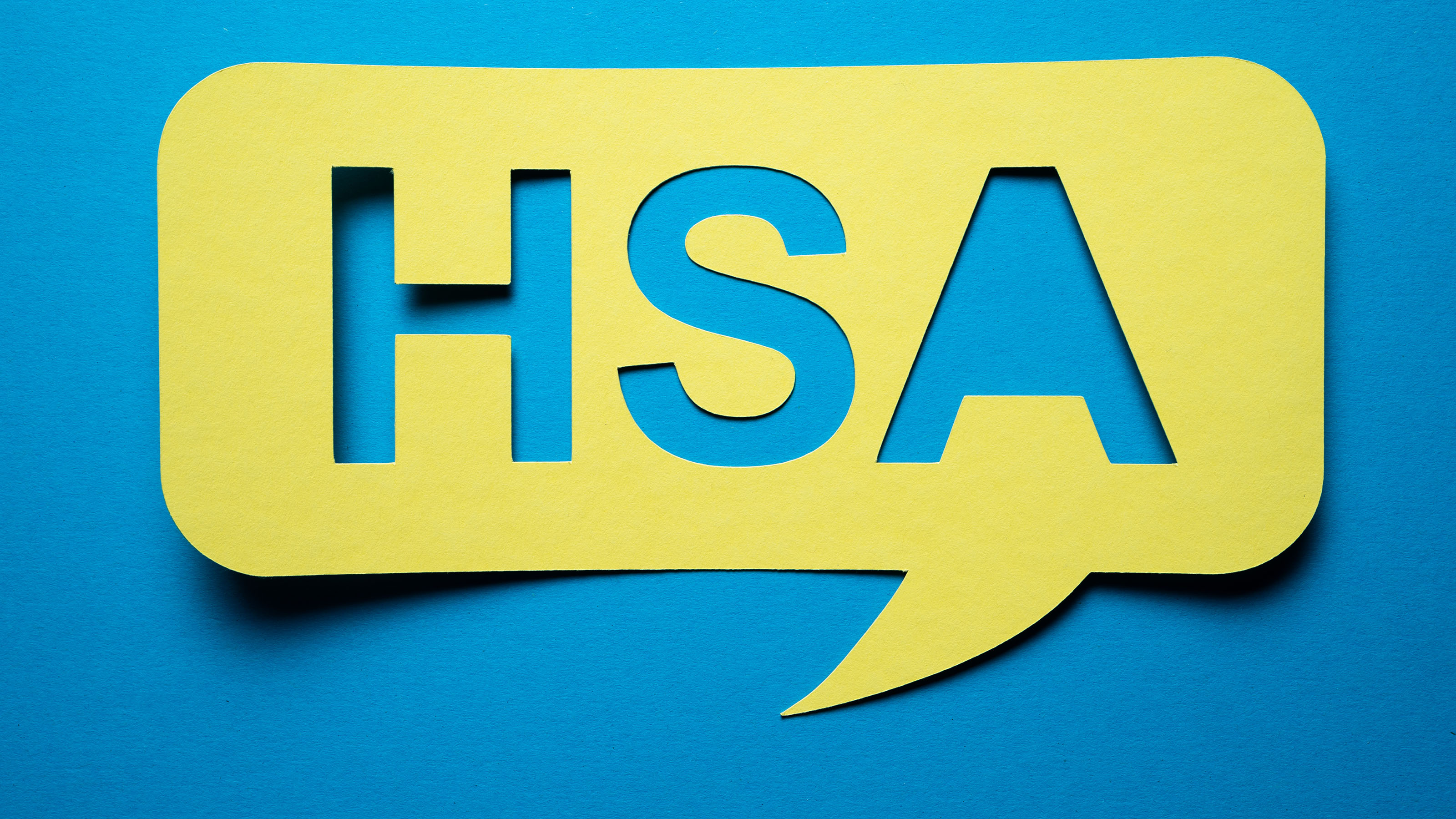2026 HSA Contribution Limits Are Set: What to Know Now
The IRS says Health Savings Account contribution limits will increase again next year due to inflation.


Profit and prosper with the best of Kiplinger's advice on investing, taxes, retirement, personal finance and much more. Delivered daily. Enter your email in the box and click Sign Me Up.
You are now subscribed
Your newsletter sign-up was successful
Want to add more newsletters?

Delivered daily
Kiplinger Today
Profit and prosper with the best of Kiplinger's advice on investing, taxes, retirement, personal finance and much more delivered daily. Smart money moves start here.

Sent five days a week
Kiplinger A Step Ahead
Get practical help to make better financial decisions in your everyday life, from spending to savings on top deals.

Delivered daily
Kiplinger Closing Bell
Get today's biggest financial and investing headlines delivered to your inbox every day the U.S. stock market is open.

Sent twice a week
Kiplinger Adviser Intel
Financial pros across the country share best practices and fresh tactics to preserve and grow your wealth.

Delivered weekly
Kiplinger Tax Tips
Trim your federal and state tax bills with practical tax-planning and tax-cutting strategies.

Sent twice a week
Kiplinger Retirement Tips
Your twice-a-week guide to planning and enjoying a financially secure and richly rewarding retirement

Sent bimonthly.
Kiplinger Adviser Angle
Insights for advisers, wealth managers and other financial professionals.

Sent twice a week
Kiplinger Investing Weekly
Your twice-a-week roundup of promising stocks, funds, companies and industries you should consider, ones you should avoid, and why.

Sent weekly for six weeks
Kiplinger Invest for Retirement
Your step-by-step six-part series on how to invest for retirement, from devising a successful strategy to exactly which investments to choose.
If you have a Health Savings Account (HSA) or are thinking about one, the IRS has announced the new contribution limits for 2026. These annual inflation adjustments are designed to keep pace with rising costs.
However, it's worth noting that HSAs might not be right for everyone.
So, as you plan your finances for next year, it’s good to know the new limits and the pros and cons of an HSA. Let's dive in.
From just $107.88 $24.99 for Kiplinger Personal Finance
Become a smarter, better informed investor. Subscribe from just $107.88 $24.99, plus get up to 4 Special Issues

Sign up for Kiplinger’s Free Newsletters
Profit and prosper with the best of expert advice on investing, taxes, retirement, personal finance and more - straight to your e-mail.
Profit and prosper with the best of expert advice - straight to your e-mail.
2026 HSA and HDHP limits: What’s new?
For 2026, the IRS has set the following annual HSA contribution limits:
- Individual (self-only) coverage: $4,400 (up from $4,300 in 2025)
- Family coverage: $8,750 (up from $8,550 in 2025)
- Catch-up for age 55+: $1,000 (unchanged)
Category | 2025 Limit | 2026 Limit |
|---|---|---|
Self Only HSA | $4,300 | $4,400 |
Family HSA | $8,550 | $8,750 |
Catch-up 55 + | $1,000 | $1,000 |
Remember: To qualify for an HSA, you must be enrolled in a high-deductible health plan (HDHP).
The IRS also adjusted the minimum deductible and maximum out-of-pocket amounts for HDHPs for 2026:
- Minimum deductible: $1,700 for individuals, $3,400 for families
- Maximum out-of-pocket: $8,500 for individuals, $17,000 for families
Key benefits of an HSA

HSA limits are adjusted annually for inflation.
HSAs are popular for their triple tax benefits. Basically, contributions are made pre-tax, the money grows tax-free, and withdrawals for qualified medical expenses are also tax-free.
Unlike flexible spending accounts (FSAs), HSA balances roll over from year to year and can be invested, allowing funds to grow for future needs. You own your HSA and keep it and the funds in it when you leave your job.
After age 65, you can use HSA funds for non-medical expenses without penalty (though you’ll pay regular income tax on those withdrawals).
Is there a downside to an HSA?
However, HSAs are not without their downsides. The most significant is the requirement to enroll in a high-deductible health plan. While those plans often have lower monthly premiums, they come with higher upfront costs if you need care.
For instance, next year (2026), you’ll need to pay at least $1,700 out of pocket before your insurance starts to pay for most services, or $3,400 for a family. (In many cases, the deductible limits are much higher than those minimums.)
Those out-of-pocket costs can be a significant financial strain for people with ongoing health needs or limited savings. Some people might even delay necessary care due to concern about upfront costs.
There are also strict rules about how HSA funds can be used.
- If you spend HSA money on anything other than qualified medical expenses before age 65, you’ll face income tax and a 20% penalty on the amount withdrawn.
- That's a steeper penalty than what applies to early withdrawals from many retirement accounts.
- Over-contributing to your HSA can also result in tax penalties.
Managing an HSA requires record-keeping. You should keep receipts and documentation to show that withdrawals were for eligible expenses. You could owe taxes and penalties if the IRS audits you and cannot provide proof.
Eligibility is another limitation. You can’t contribute to an HSA if you’re enrolled in Medicare or are claimed as someone else’s dependent. You also can’t have a general-purpose FSA at the same time as an HSA.
Finally, the full benefits of an HSA are only realized by those who can afford to contribute and invest consistently. Setting aside enough to take advantage of long-term tax savings may be challenging for people living paycheck to paycheck.
HSA tax planning for 2026: Bottom line
As you review your options for the coming year, weigh the practical considerations involved with HSAs.
The new limits for 2026 offer more opportunity to save, but only if the structure of an HDHP and HSA rules fit your health and financial situation.
Consult a trusted and qualified financial planner or tax professional if you're unsure.
Read More
Profit and prosper with the best of Kiplinger's advice on investing, taxes, retirement, personal finance and much more. Delivered daily. Enter your email in the box and click Sign Me Up.

Kelley R. Taylor is the senior tax editor at Kiplinger.com, where she breaks down federal and state tax rules and news to help readers navigate their finances with confidence. A corporate attorney and business journalist with more than 20 years of experience, Kelley has helped taxpayers make sense of shifting U.S. tax law and policy from the Affordable Care Act (ACA) and the Tax Cuts and Jobs Act (TCJA), to SECURE 2.0, the Inflation Reduction Act, and most recently, the 2025 “Big, Beautiful Bill.” She has covered issues ranging from partnerships, carried interest, compensation and benefits, and tax‑exempt organizations to RMDs, capital gains taxes, and energy tax credits. Her award‑winning work has been featured in numerous national and specialty publications.
-
 Quiz: Do You Know How to Avoid the "Medigap Trap?"
Quiz: Do You Know How to Avoid the "Medigap Trap?"Quiz Test your basic knowledge of the "Medigap Trap" in our quick quiz.
-
 5 Top Tax-Efficient Mutual Funds for Smarter Investing
5 Top Tax-Efficient Mutual Funds for Smarter InvestingMutual funds are many things, but "tax-friendly" usually isn't one of them. These are the exceptions.
-
 AI Sparks Existential Crisis for Software Stocks
AI Sparks Existential Crisis for Software StocksThe Kiplinger Letter Fears that SaaS subscription software could be rendered obsolete by artificial intelligence make investors jittery.
-
 How to Open Your Kid's $1,000 Trump Account
How to Open Your Kid's $1,000 Trump AccountTax Breaks Filing income taxes in 2026? You won't want to miss Form 4547 to claim a $1,000 Trump Account for your child.
-
 In Arkansas and Illinois, Groceries Just Got Cheaper, But Not By Much
In Arkansas and Illinois, Groceries Just Got Cheaper, But Not By MuchFood Prices Arkansas and Illinois are the most recent states to repeal sales tax on groceries. Will it really help shoppers with their food bills?
-
 7 Bad Tax Habits to Kick Right Now
7 Bad Tax Habits to Kick Right NowTax Tips Ditch these seven common habits to sidestep IRS red flags for a smoother, faster 2026 income tax filing.
-
 New Plan Could End Surprise Taxes on Social Security 'Back Pay'
New Plan Could End Surprise Taxes on Social Security 'Back Pay'Social Security Taxes on Social Security benefits are stirring debate again, as recent changes could affect how some retirees file their returns this tax season.
-
 10 Cheapest Places to Live in Colorado
10 Cheapest Places to Live in ColoradoProperty Tax Looking for a cozy cabin near the slopes? These Colorado counties combine reasonable house prices with the state's lowest property tax bills.
-
 New Gambling Tax Rule Impacts Super Bowl 2026 Bets
New Gambling Tax Rule Impacts Super Bowl 2026 BetsTaxable Income When Super Bowl LX hype fades, some fans may be surprised to learn that sports betting tax rules have shifted.
-
 Should You Do Your Own Taxes This Year or Hire a Pro?
Should You Do Your Own Taxes This Year or Hire a Pro?Taxes Doing your own taxes isn’t easy, and hiring a tax pro isn’t cheap. Here’s a guide to help you figure out whether to tackle the job on your own or hire a professional.
-
 Can I Deduct My Pet On My Taxes?
Can I Deduct My Pet On My Taxes?Tax Deductions Your cat isn't a dependent, but your guard dog might be a business expense. Here are the IRS rules for pet-related tax deductions in 2026.